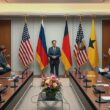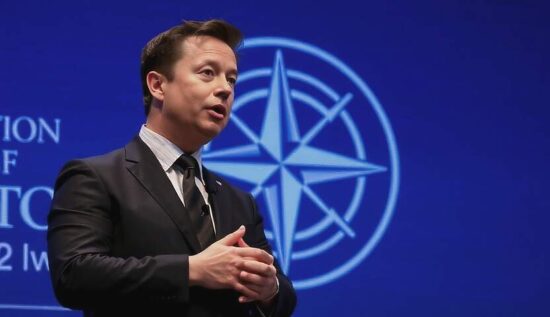Elon Musk’s NATO Critique Ignites Debate on the Alliance’s Future
In a tweet that sparked a new debate on the future of the North Atlantic Treaty Organization (NATO), Elon Musk, CEO of Tesla and SpaceX, called for a fundamental reform of the military alliance. “NATO needs an overhaul” Musk tweeted.
US President Trump, who has repeatedly criticized the NATO alliance, especially in terms of its financial structures, sees his assessment confirmed by Musk’s statement. Trump has long highlighted the uneven burden sharing within the alliance, particularly urging European members to increase their defense spending to the alliance’s target of 2% of their gross domestic product (GDP). Trump has even suggested that the target should be increased to 5% of GDP, a figure that Musk may also be considering in his thoughts on NATO.
However, Trump’s criticism goes beyond financial aspects. He has repeatedly threatened to withdraw the US military support for NATO members that do not increase their defense spending and has questioned whether the alliance still has its original significance in a post-Cold War world. Musk shares this view, considering the alliance as outdated. The end of the Cold War over three decades ago has put the original concept of the alliance into question, argue both Musk and Trump. With the collapse of the Soviet Union, the geopolitical framework of NATO has become obsolete and the alliance must redefine its role today.
Criticism from both men goes beyond financial inefficiency. Both Musk and Trump question whether NATO is capable of addressing the modern security challenges, such as cyber attacks, terrorism, or the geopolitical expansion of China. The alliance has made some adjustments in recent years, but critics argue that it still remains strongly focused on traditional military confrontations and fails to adequately reflect the complexity of today’s global conflicts.
Another aspect Musk highlights in his criticism is the growing US influence on NATO and the resulting burden on the US military budget. Trump has repeatedly emphasized that the United States bears an disproportionate part of the costs for the defense alliance, which puts a heavy strain on US foreign policy. Musk, known for his disruptive ideas, seems to share this frustration and demands that the financial and political structures of NATO be adapted to the current global demands.
In general, the statements by Musk, which reflect the long-standing criticism of Trump, open a new perspective on the role of NATO in the 21st century. It raises the question of whether the alliance, which served as a guarantor of collective security for the West after the Cold War, is still capable of addressing the challenges of the modern world.
The joint demand for reform by Musk and Trump could gain more significance in the coming years as Western states ponder the future of NATO.





